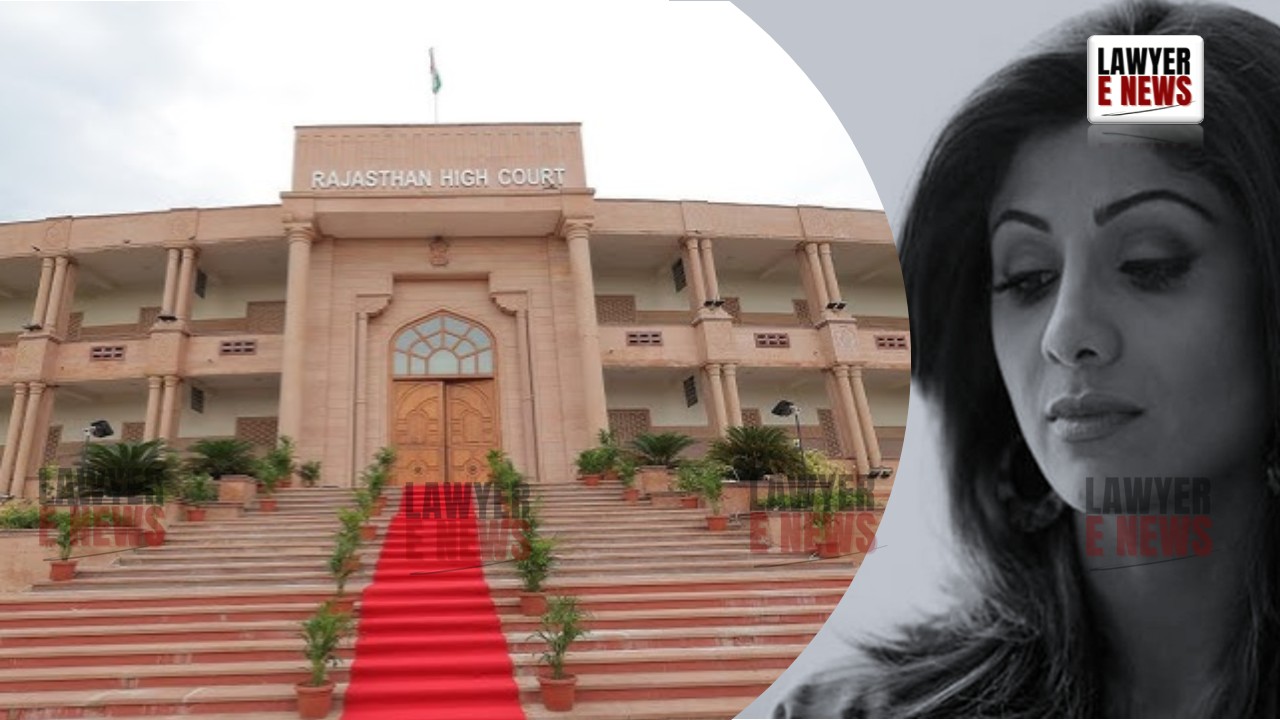-
by sayum
14 February 2026 2:22 PM



Rajasthan High Court quashed an FIR against actress Shilpa Raj Kundra in Shilpa Raj Kundra v. State of Rajasthan & Ors. (CRLMP-1600/2018). The FIR, registered in December 2017 under Section 153A of the Indian Penal Code (IPC) and Sections 3(1)(r)(u) of the Scheduled Castes and Scheduled Tribes (Prevention of Atrocities) Act, 1989 (SC/ST Act), alleged that Kundra’s comments during a 2013 television interview were derogatory to the Valmiki community.
Justice Arun Monga, ruling in favor of Kundra, found that the FIR lacked prima facie evidence to support allegations of malicious intent or mens rea required under the cited provisions. The Court also noted procedural lapses, including non-compliance with mandatory sanctions under Section 196 of the Code of Criminal Procedure (CrPC).
The FIR was filed by Ashok Panwar, a member of the Valmiki community, alleging that Kundra and actor Salman Khan used the term “Bhangi” in a derogatory manner during a televised interview. Panwar claimed the remark caused social unrest and hurt community sentiments. The FIR was registered nearly four years after the interview aired, raising significant questions about its timing and credibility.
Kundra’s defense argued that the term was used colloquially without malicious intent and lacked the requisite elements of the offenses alleged. The defense also highlighted that Sections 3(1)(r)(u) of the SC/ST Act, under which the FIR was lodged, were added to the statute only in 2016—three years after the interview in question.
Justice Monga noted that the FIR’s delay of over three years was “per se fatal,” citing precedents that underscore the importance of prompt reporting to maintain the credibility of criminal complaints. The Court emphasized that delayed FIRs risk embellishment and undermine the spontaneity essential for reliable legal action.
On the allegations under the SC/ST Act, the Court stated that “intent to humiliate or insult” based on caste identity is a prerequisite for invoking Section 3(1)(r). The Court found no evidence or intent in the FIR to suggest that Kundra’s comments were aimed at demeaning the Valmiki community. Instead, the remarks were interpreted as casual and taken out of context.
Additionally, the Court observed that Section 153A IPC, which criminalizes actions promoting enmity between groups, requires clear evidence of mens rea and intent to incite discord. The Court concluded that the allegations failed to meet these stringent requirements.
The judgment highlighted procedural deficiencies, particularly the absence of mandatory government sanction under Section 196 CrPC for offenses under Section 153A IPC. Justice Monga emphasized that this omission rendered the FIR legally unsustainable.
Finding the FIR devoid of substantive legal merit and fraught with procedural lapses, the Rajasthan High Court quashed the complaint. The judgment reaffirms the need for concrete evidence and intent in criminal cases involving allegations of caste-based offenses, safeguarding public figures from frivolous litigation while maintaining respect for the SC/ST Act’s objectives.
Date of Decision: October 18, 2024.
